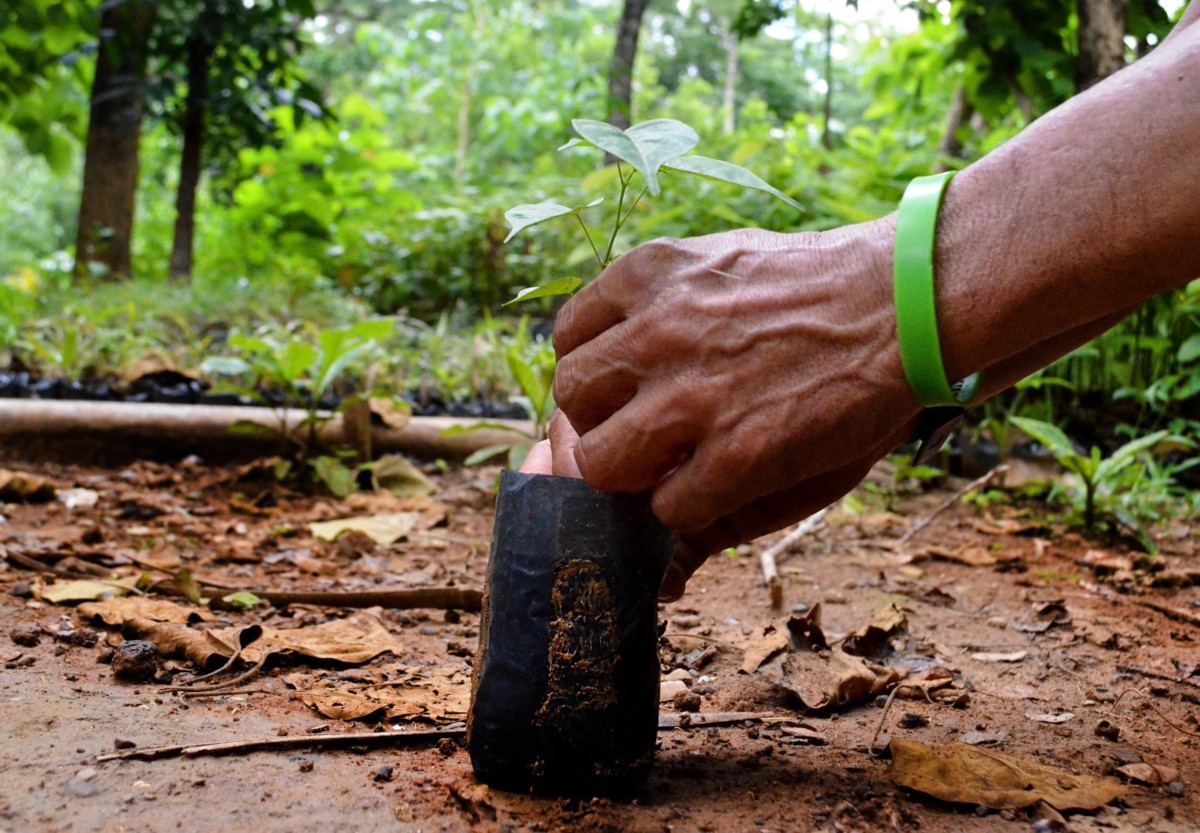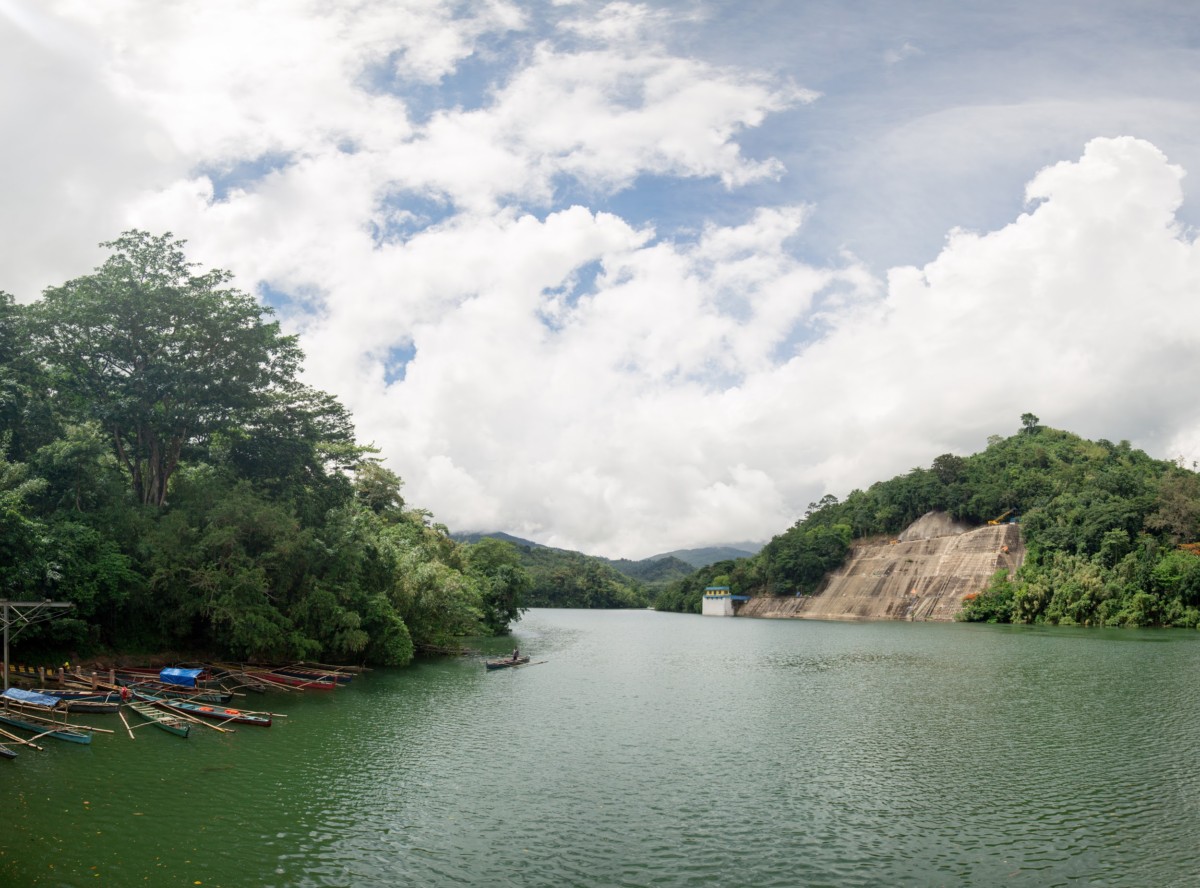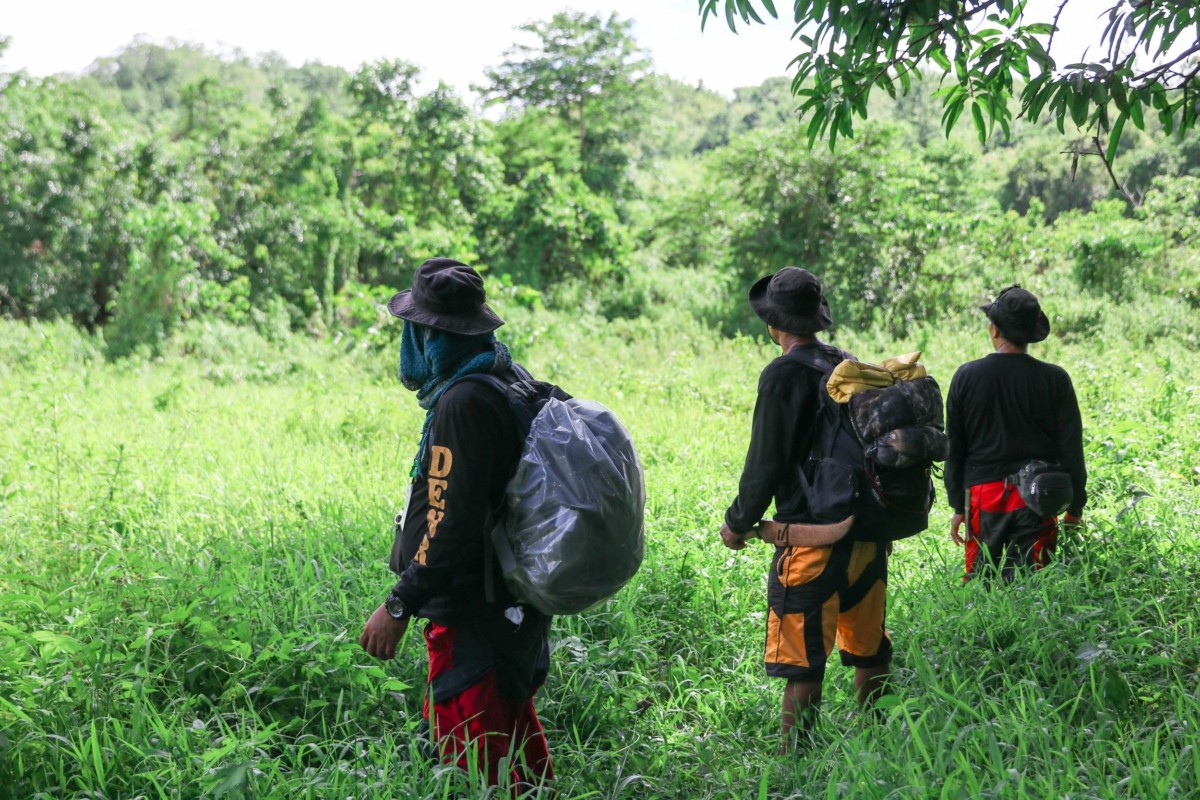Water Shortages After Recent Storms Proof of the Importance of Forest Conservation
November 2020

A volunteer plants a seedling in the forests of Ipo Watershed. Forest conservation and rehabilitation is vital to ensuring water security, says WWF-Philippines. Photograph © WWF-Philippines / Gregg Yan
Manila, Philippines – Water supply issues and shortages caused by the recent typhoon that struck the island of Luzon are proof of the importance of forest environments, says the World Wide Fund for Nature (WWF) Philippines.
Typhoon Ulysses (International Name: Vamco) – the fourth in a series of strong storms to strike the country between the months of October and November – passed through Central Luzon, bringing with it heavy rains. Much of the land across the island of Luzon was waterlogged from the previous storms, and the additional rain brought by Ulysses led to flooding similar to what was seen during Tropical Storm Ondoy back in 2009.
As floods inundated cities across Luzon, mudslides and heavy erosion caused the waters of Ipo Dam to turn brown. This led to days of water shortages in certain areas across Metro Manila.
Approximately 6 million Filipinos living in Metro Manila were affected by water shortages experienced in March of 2019 – almost half the population of the urban metropolis.
WWF-Philippines has been working with local stakeholders on forest protection and conservation efforts to mitigate massive siltation events of this scale from happening again in the future. The root systems of a healthy forest, reminds the environmental conservation organization, help in controlling soil erosion and the siltation.

A panoramic view of Ipo Watershed. The watershed provides water to 96% of Metro Manila. Photograph © WWF-Philippines / Joshua Alibcag
Without forests to hold the ground in place, a denuded mountainside can easily slip into bodies of water during heavy rain, as was seen during the recent set of storms.
“Deforestation, that’s the obvious primary reason as to why the waters in Ipo Reservoir has been turning brown, because of soil erosion leading to siltation. With climate change, the problem gets even more complex. Now, the water supply of millions of Filipinos is too muddy,” said WWF-Philippines Forest for Water Project Manager Paolo Pagaduan.
WWF-Philippines has been working toward the protection and rehabilitation of Ipo Watershed since 2017. Ipo Watershed supplies water to over 96% of Metro Manila.
“There are other, less obvious reasons as well as to why these forests are important to our water supply,” added Pagaduan. “The forest cover itself is important in keeping the rains from contaminating the water we drink.”
Good forest cover keeps water droplets from directly striking the ground. When rain strikes the ground directly, it dislodges more soil, sending dirt tumbling downhill into the water supply below, explained Pagaduan.

Bantay Gubat patrol Ipo Watershed in search of illegal activity. Photograph © WWF-Philippines / Joshua Alibcag
In order to protect the water supply of Metro Manila, the forests of Ipo Watershed require both protection and rehabilitation. Enforcement against illegal logging and land-use conversion is crucial to protecting the integrity of the forest, while conservation practices that ensure planted trees reach adulthood is needed to help the watershed recover.
“More than anything, we need nature-based solutions to protect our water supply. That’s the most effective long-term solution to ensuring that everyone in the Manila region gets the water they need. Protecting these forests is a matter of justice for millions of people,” added Pagaduan.
Water shortages now loom over the nation’s capital as it recovers from the damage brought by Typhoon Ulysses. As this latest crisis rolls out, conservation organizations like WWF-Philippines highlight the need for nature-based solutions and healthy forests in order to lessen the impacts of devastating storms.
Follow WWF-Philippines, and help #ChangeTheEnding for a more climate-resilient future.
For more information, please contact:
Mr. Paolo Pagaduan
Forests for Water Project Manager
ppagaduan@wwf.org.ph
For media arrangements, please contact:
Ms. Pam Luber
Integrated Communications Manager
pluber@wwf.org.ph
Ms. Chezka Guevarra
Public Relations, Media, and Events Assistant Manager
cguevarra@wwf.org.ph
